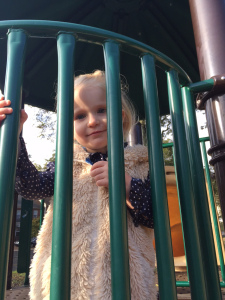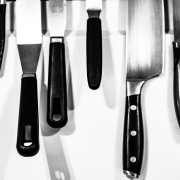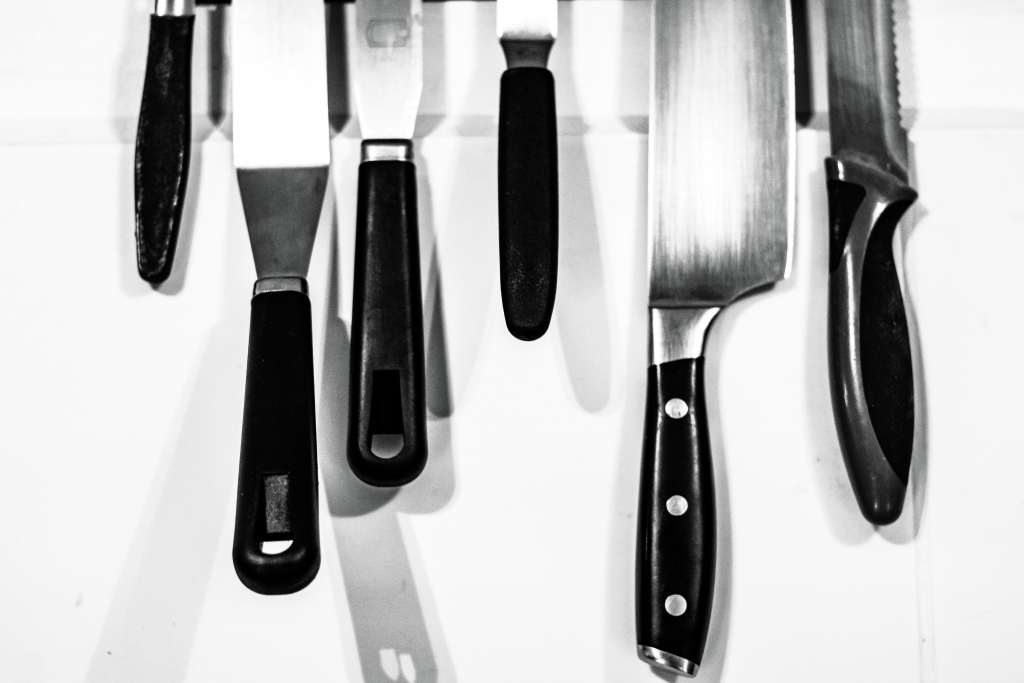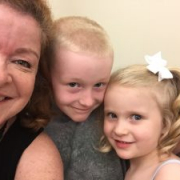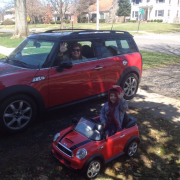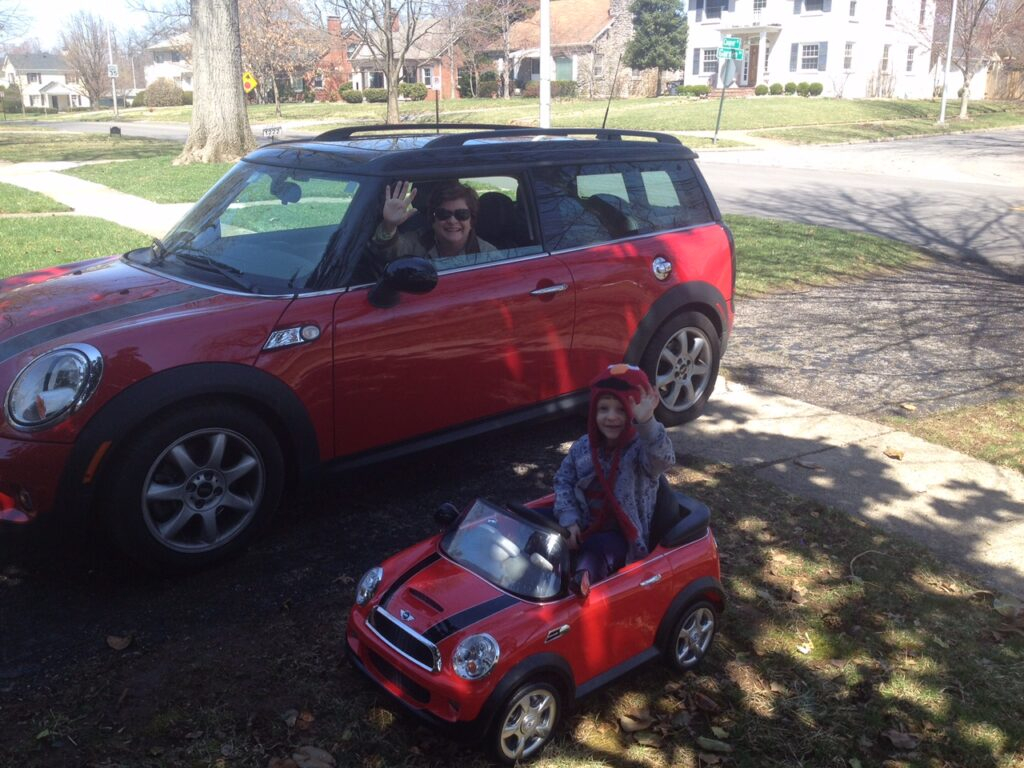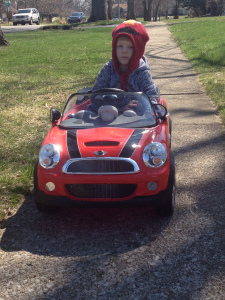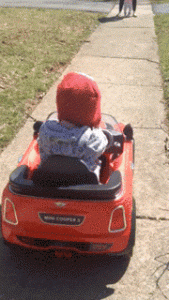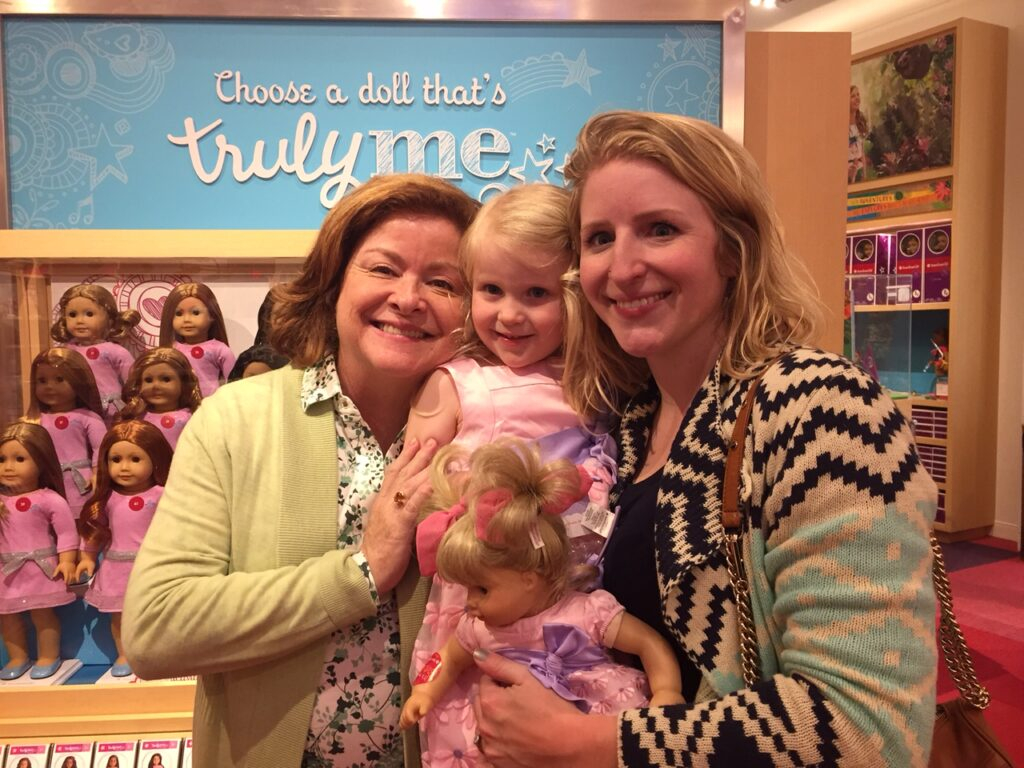
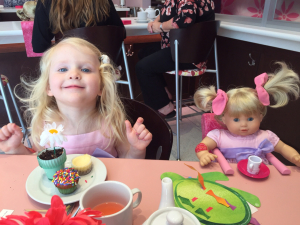 It is a truth universally acknowledged (as the immortal Austen might have put it), that giving stuff to kids is fun.
It is a truth universally acknowledged (as the immortal Austen might have put it), that giving stuff to kids is fun.
They make it so easy for you, the little buggers, when they radiate anticipation, joy, and wonder in such bewitching fashion, whether ripping into a birthday gift, staring through that store window, or beholding the bounty of Santa Claus. Who can resist providing such golden moments, frozen in memory for years to come?
Well, I could, and I did.
When Buddy and Sis were tiny miniature people, not even walking yet, I watched the massive pileups of festive packages at Christmas and first birthdays and thought: This is ridiculous. These children have too much stuff, they will never play with all of it, never remember most of it, surely never realize who showered all this on their blessed little unknowing heads. It was not the fault of their parents, or really anyone in particular—it was the collective outpouring of affection from many that looked like the offerings of a bunch of Anglophiles invited to a birthday party for young Prince George. Those thoughts birthed other, shadowy contemplations about the materialism of our culture, the financial implications of giving children so much, the unending cycle of more, more, more. I was raised by practical, realistic people, who loved the spirit of giving but moderated sensibly (and essentially, with four children) and started very early teaching the important truths about earning, and sacrificing, to get what we want.
I pondered this and started by holding myself a few steps removed from the gift extravaganzas, resisting the temptation to bring random gifts when I visited, carefully selecting relatively modest options on the obligatory occasions, refusing to think I could demonstrate commitment or build bonds with what I bought them.
And then some stuff happened.
The first was a memorable misfire. When Buddy turned four last spring, I had fun selecting a bright green teeter-totter designed with the face of an alligator, or perhaps a crocodile, because I have always been confused about the difference. The gator/croc seats two, and I thought: Perfect! It’s active, it’s healthy, it’s cute, they’ll love it. Wrong. Early interest was noticeably minimal, then Sis fell off and created a stir, and it was clear we had a dud. Confirmation was offered later, when I happened to mention the gator/croc rocker. Buddy horrified his listening parents with precise, solemn honesty: “Next year on my birthday, will you get me something I want?”
But the real force that knocked me off my lofty perch was the simple passage of time. The children became talkative toddlers, imaginations running wild, something bizarre and hilarious forever on their minds and coming out their mouths. Anyone with ears and a heart, listening and seeing things through their eyes…well, what happens? You know how this ends, don’t you? Stay tuned for delivery of the evidence.
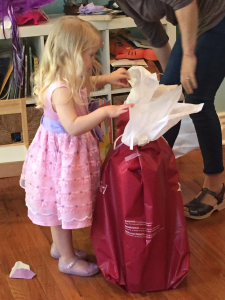
Sis turned three a few weeks back, and I joined an expedition for birthday tea at the American Girl store.++ Contemplating this in advance, I feared disaster. Tea and birthday cupcakes with the birthday doll (dressed to match the birthday girl), very cute and fun, can’t wait to see it. But let her roam through the store, with piles of product on glorious display as far as a three-year-old can see? What if she asks for one of everything? Isn’t this trap invented by an evil marketing genius?
At first, Sis surprised me, as she so often does. When the post-tea store tour commenced, she skipped from one display to the next, telling everyone, “It’s my birfday,” exclaiming over much and asking for little. I watched for clues to select my own gift, but got nothing. Then I crossed the store to find the ladies room and missed the inevitable challenge. Her mother reported it went as follows.
the ladies room and missed the inevitable challenge. Her mother reported it went as follows.
Sis put her birthday doll into a bright pink doll stroller with fat, maneuverable wheels and handles at just the right height, and promptly pushed her baby for a spin. Come along, her mother said after a few turns, we need to go now. No, came the heartbroken wail, my baby NEEDS it, and she clung stubbornly, refusing to turn loose. Finally, her mother pried her hands off the handles and led the tearful birthday girl away before the scene reached genuine meltdown stage. This all transpired, thank goodness, before I returned. Because I might have caved right then, much worse (or so I told myself) than caving once the child was out of sight.
Naturally, the earlier, tougher, morally grounded me would never reward such behavior by buying the item, even though Sis recovered with more grace and self-possession than might have been expected under the circumstances. I would have chosen something else entirely, to drive home a lesson that we never achieve good ends by behaving badly in public.
That was then, and this is now. As with so many other things involving these children, I don’t know if it was right or wrong, or if grandparenting drives reason and logic to the far and high hills, or whether I’m over-thinking the entire dadgum thing. But it ended this way: Sis got the stroller (though not til the next day—give me that, please), Birthday Baby got a fine new ride, and I must face the mirror and admit I’m as susceptible to spoiling as any grandparent on this earth. At least there is solace in knowing I have a lot of company.
________________________________________________________________
++Our experience at the American Girl store was indeed memorable. The staff was charming to the children and exceptionally helpful, the products interesting in their detailed connection to periods of American history, the dolls diverse and representative of many origins in our American culture. I can recommend it to other parents and grandparents, but I receive no benefit from doing so here.

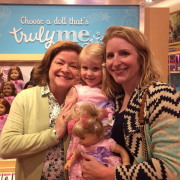
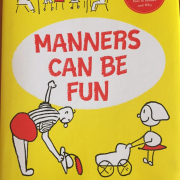
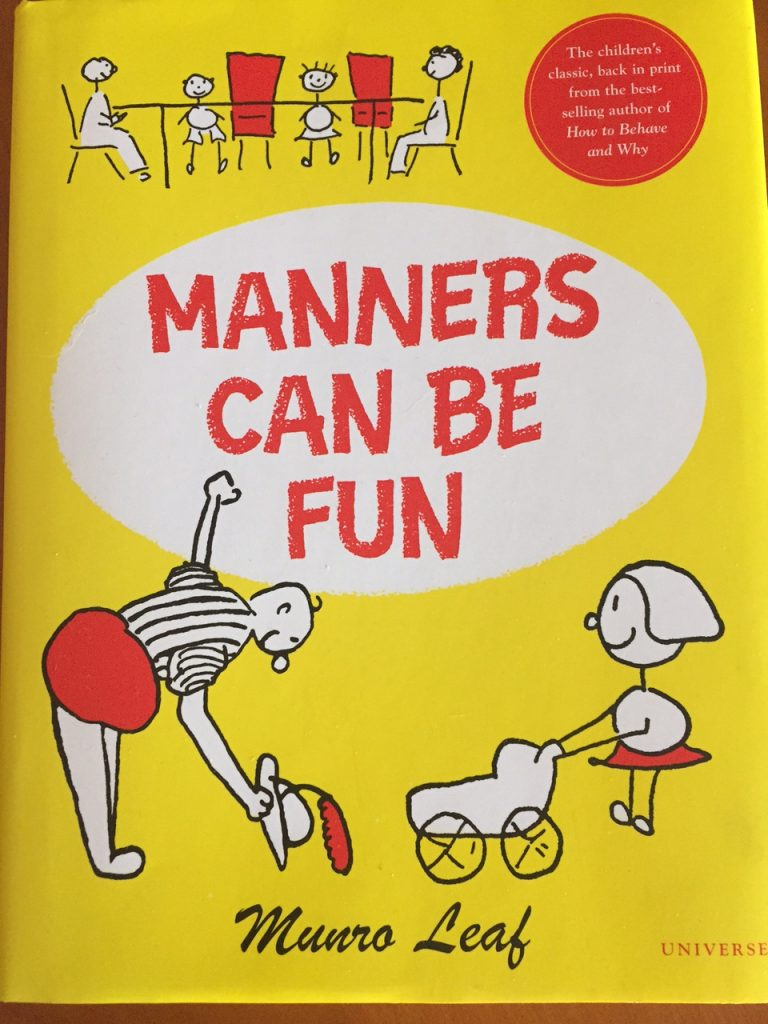
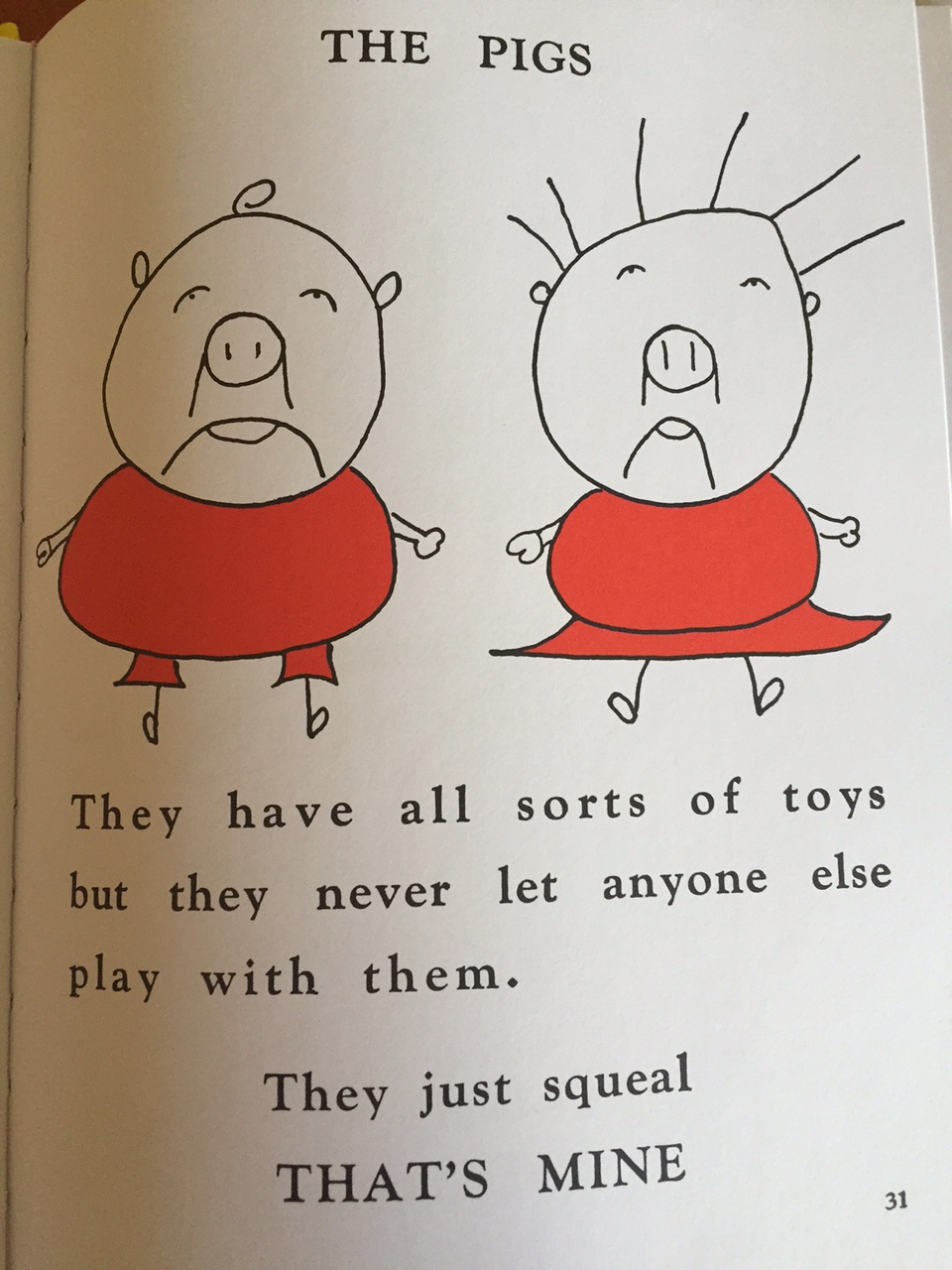
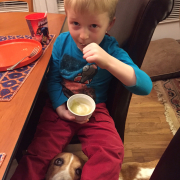
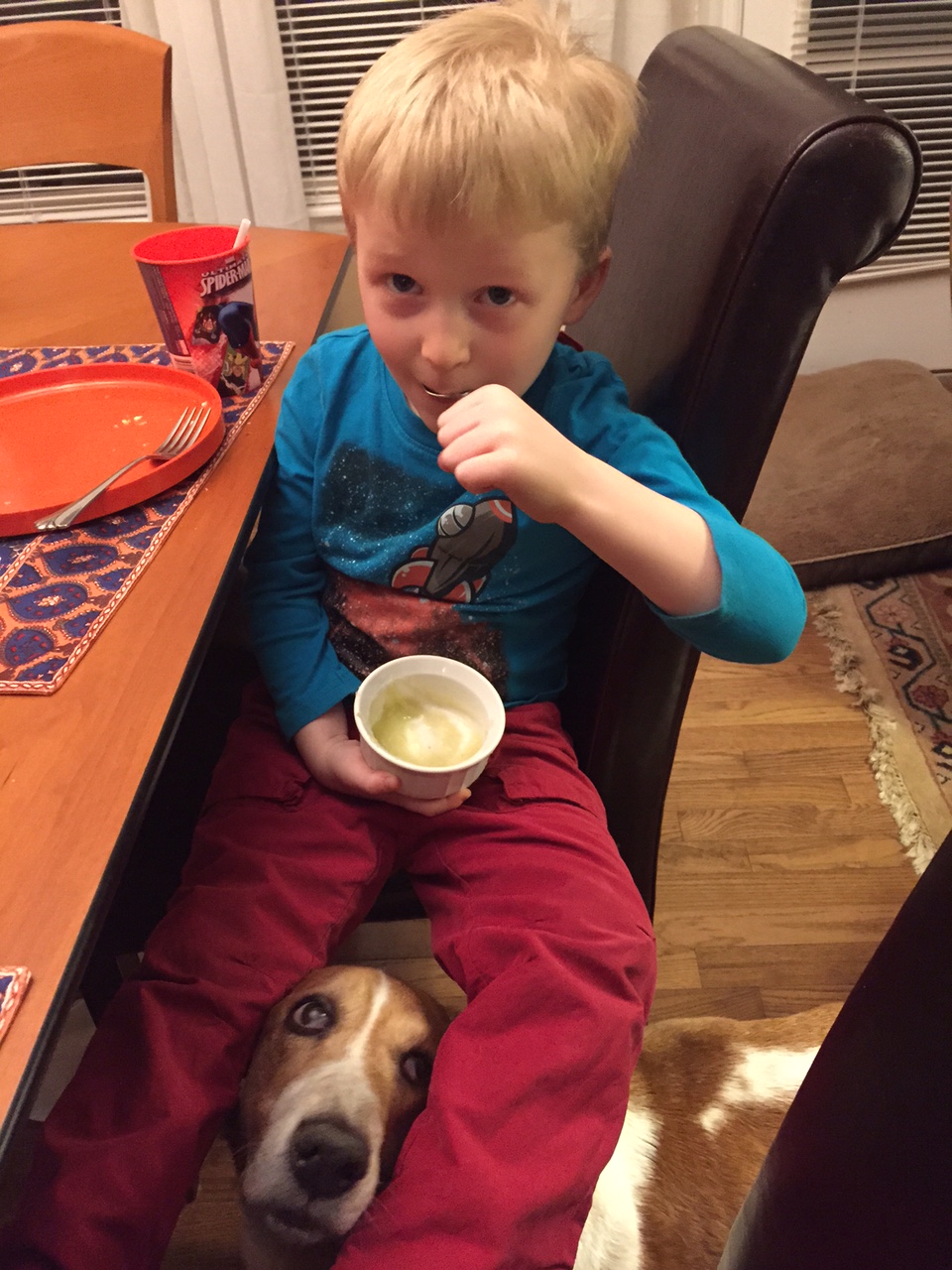



 The “I’m hungry” chorus seems to be moderating slightly with our Buddy, who at almost five is tall and slim for his age, a great eater, but no longer as relentlessly ravenous as his younger sister. At almost three, Sis demonstrates precocious multi-tasking skills, juggling a morsel or bite of something in her hands at almost all times, during most activities, unless she puts down the food to pick up a glass of something. A traditionalist disciplinarian might frown on this constant snacking between meals, but I can attest that it does nothing to diminish her appetite for actual meals, so who am I to question it?
The “I’m hungry” chorus seems to be moderating slightly with our Buddy, who at almost five is tall and slim for his age, a great eater, but no longer as relentlessly ravenous as his younger sister. At almost three, Sis demonstrates precocious multi-tasking skills, juggling a morsel or bite of something in her hands at almost all times, during most activities, unless she puts down the food to pick up a glass of something. A traditionalist disciplinarian might frown on this constant snacking between meals, but I can attest that it does nothing to diminish her appetite for actual meals, so who am I to question it?

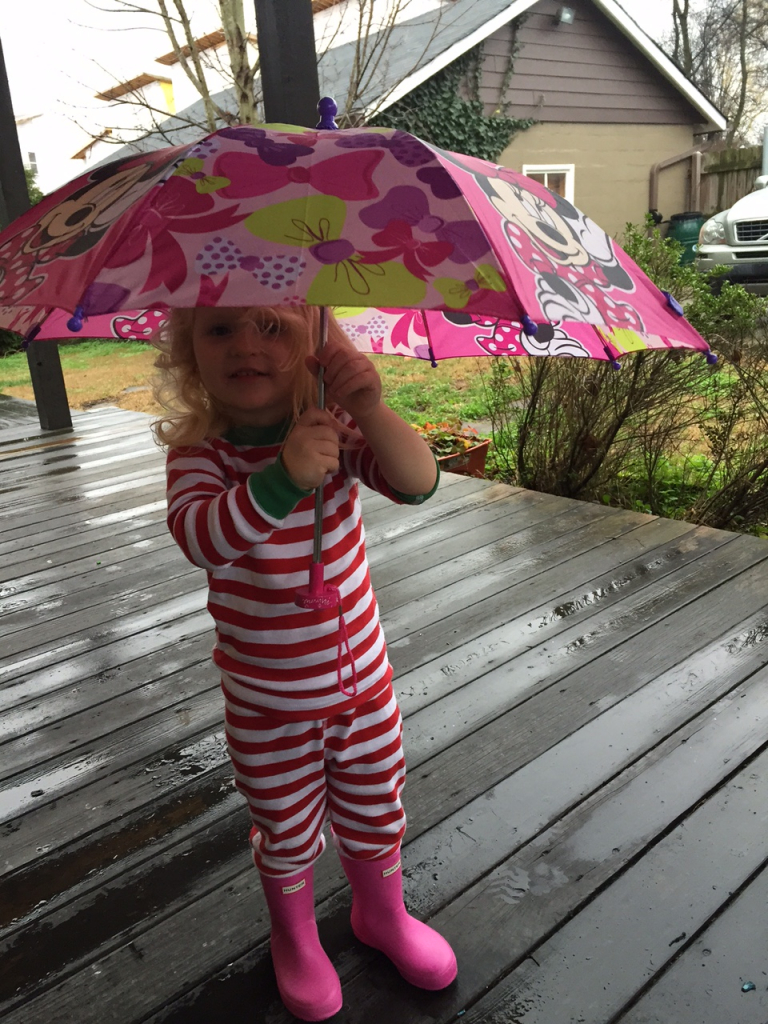
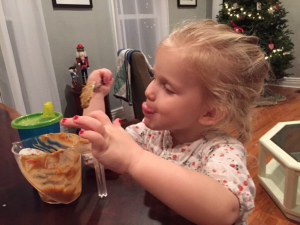



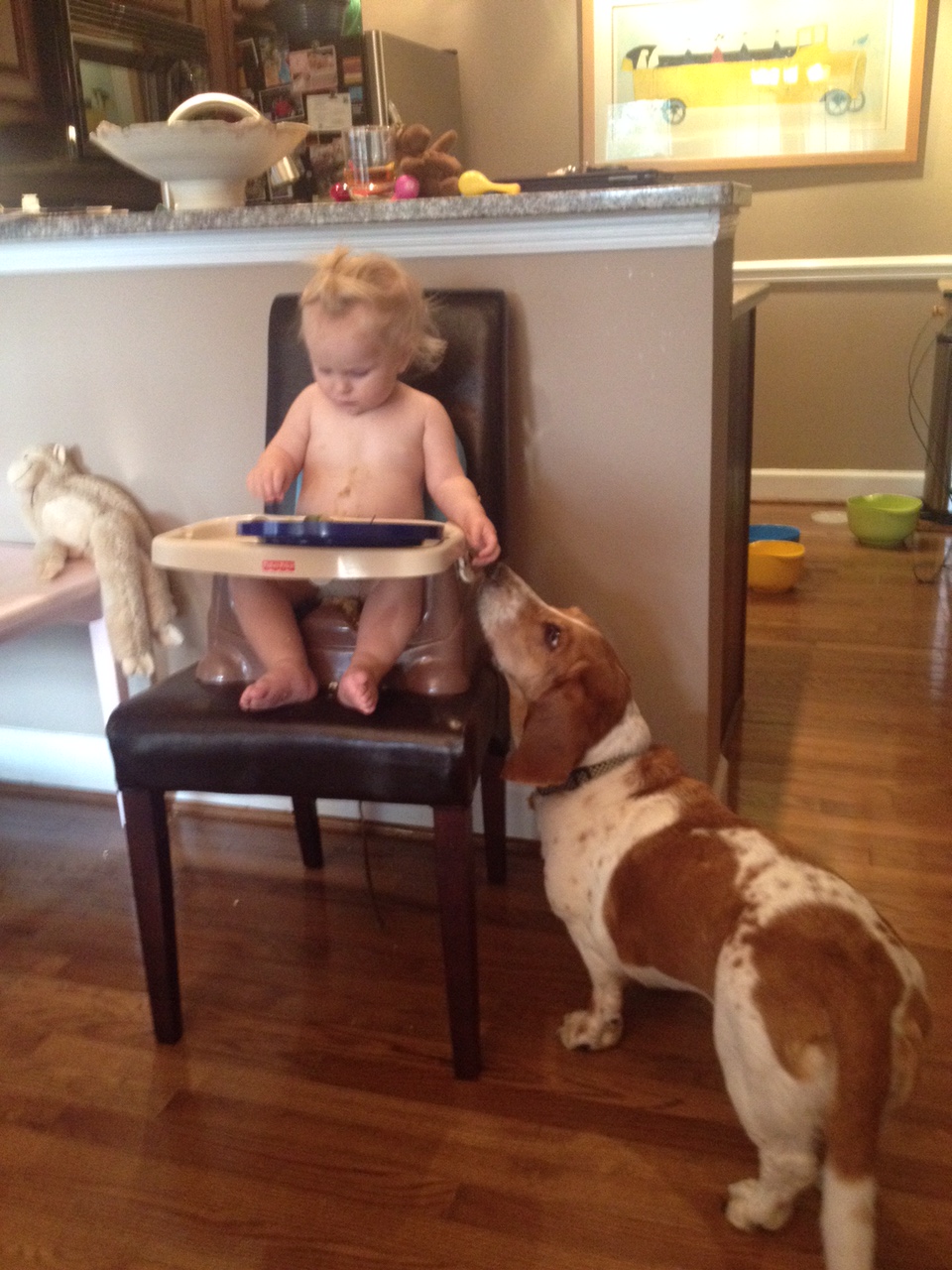 Ah, excellent. They’re going straight to the table. The strategy here is clear: Wait till they all sit down, and they never notice if I just creep underneath there, hang out quietly between all those shoes, and wait. Everyone drops stuff, but the two Short Ones are the best droppers who ever eat at our house. Everything they eat lands on the floor, and big pieces, too. And look! It’s those sliced things in boxes. I LOVE the crust on those things, but there’s other good stuff on them, too. Cheese, sausage…I’m drooling a little bit under here, waiting for it. Hope no one notices.
Ah, excellent. They’re going straight to the table. The strategy here is clear: Wait till they all sit down, and they never notice if I just creep underneath there, hang out quietly between all those shoes, and wait. Everyone drops stuff, but the two Short Ones are the best droppers who ever eat at our house. Everything they eat lands on the floor, and big pieces, too. And look! It’s those sliced things in boxes. I LOVE the crust on those things, but there’s other good stuff on them, too. Cheese, sausage…I’m drooling a little bit under here, waiting for it. Hope no one notices.


